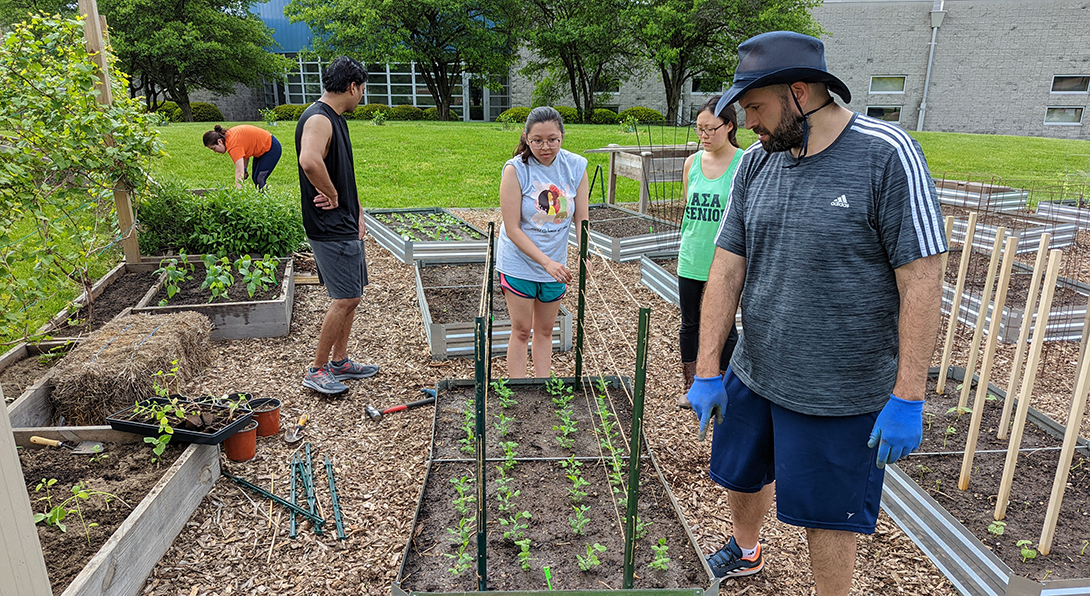Promoting Plant-Based Diets in Underserved Communities

Introduction
As family physicians we often serve as primary sources of health advice, especially in underserved communities where access to specialized care and nutritional counseling may be limited. Promoting a mostly plant-based diet can significantly improve health outcomes in these populations, addressing issues such as chronic diseases, obesity, and malnutrition. We are learning more and more every day about the benefits of a predominantly plant-based diet.
Understanding the Benefits
A mostly plant-based diet, rich in fruits, vegetables, whole grains, nuts, seeds, and legumes, offers numerous health benefits, including but not limited to:
Reduced Risk of Chronic Diseases
Plant-based diets are associated with lower risks of heart disease, hypertension, type 2 diabetes, and certain cancers.
Weight Management
High-fiber, nutrient-dense foods help with weight management and satiety.
Improved Digestive Health
The fiber in plant foods promotes healthy digestion by improving the gut microbiome and prevents constipation.
Addressing Common Barriers
Underserved communities often face unique challenges that can make dietary changes difficult. It’s important that we make it attainable for our most at-risk populations as well. As we know, these include limited access to fresh produce, economic constraints and lack of nutrition education.
Education and Awareness
Simplify Nutritional Concepts
Explain the benefits of a plant-based diet in simple terms. Use visual aids, such as the plate method, to show the ideal proportions of different food groups.
Cultural Relevance
Incorporate culturally relevant foods and recipes that resonate with the community’s traditions and preferences. This increases the likelihood of acceptance and adherence.
Improving Access to Healthy Foods
Community Gardens and Farmers’ Markets
Advocate for or help establish community gardens and local farmers’ markets. These can provide affordable, fresh produce and strengthen community ties.
Food Assistance Programs
Inform patients about food assistance programs like SNAP (Supplemental Nutrition Assistance Program) and how they can use these benefits to buy healthy foods.
Budget-Friendly Tips
Affordable Staples
Recommend cost-effective, nutrient-dense staples such as beans, lentils, brown rice, and oats. These can be the foundation of many plant-based meals.
Buying in Bulk
Encourage buying non-perishable items like grains and legumes in bulk, which is often cheaper.
Seasonal and Frozen Produce
Suggest purchasing seasonal produce, which is typically less expensive, or frozen fruits and vegetables, which are nutritious and longer-lasting alternatives to fresh produce.
Meal Planning and Preparation
Simple Recipes
Provide easy, nutritious recipes that require minimal ingredients and preparation time. Demonstrations or cooking classes can be very helpful.
Batch Cooking
Teach patients about batch cooking and meal prepping to save time and money. Preparing large quantities of food and freezing portions can make healthy eating more convenient.
Healthy Swaps
Offer suggestions for plant-based substitutes in common recipes, such as using beans instead of meat in stews and casseroles.
Building Support Systems
Peer Support Groups
Facilitate the formation of support groups where community members can share recipes, tips, and experiences. This can enhance motivation and accountability.
Family Involvement
Encourage involving the entire family in dietary changes to ensure support and to make meal planning easier.
Tailoring Advice to Individual Needs
Each patient is unique, and it’s important to tailor dietary advice to individual preferences, medical conditions, and lifestyle. Consider the following:
Personal Preferences
Take into account the patient’s taste preferences, cooking skills, and willingness to try new foods.
Health Conditions
Adjust recommendations based on any existing health conditions, such as recommending specific nutrients for diabetic patients or those with hypertension.
Incremental Changes
Encourage small, gradual changes rather than an overnight overhaul. This approach is often more sustainable and less overwhelming.
Conclusion

Advising a mostly plant-based diet in underserved communities involves understanding the specific challenges these populations face and providing practical, culturally sensitive, and economically feasible solutions. By educating patients, improving access to healthy foods, offering budget-friendly tips, and building support systems, family physicians can play a crucial role in promoting better health outcomes. Remember, small, consistent changes can lead to significant improvements in health and well-being.